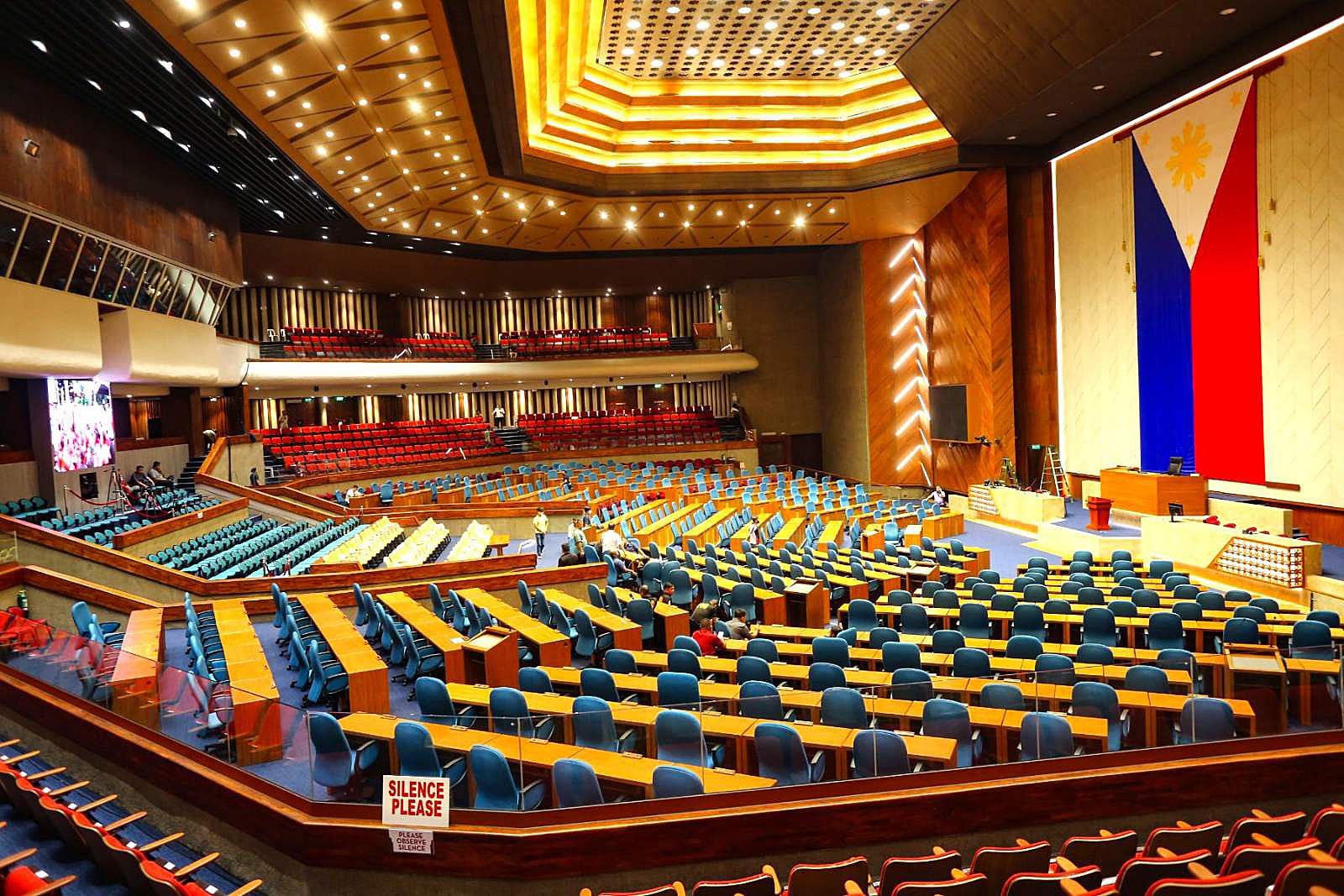News
House OKs on 2nd reading bill on anti-foreign currency smuggling

SONA READY. Final look at the House of Representatives inside the Batasang Pambansa Complex in Quezon City on Wednesday (July 19, 2023) before it goes on security lockdown. President Ferdinand R. Marcos Jr. will deliver his second State of the Nation Address at the session hall on Monday (July 24). (PNA photo by Joan Bondoc)
MANILA – The House of Representatives has approved on second reading a measure penalizing bulk cash smuggling to and from the Philippines to clamp down on terrorist and nefarious financing.
During the plenary session on Tuesday, the chamber passed through voice voting House Bill 8200, or the proposed Anti-Bulk Foreign Currency Smuggling Act.
House Committee on Ways and Means chair Joey Salceda, author of the measure, said penalizing the smuggling of cash in bulk is one of the key measures that the country could adopt to shed doubts about it being a “hub for money laundering.”
“It will also make global financial institutions less risk-averse when dealing with our financial institutions, which helps OFWs (overseas Filipino workers) remit money easier and cheaper,” Salceda said.
Foreign banks are hesitant to transact with Filipinos and local banks due to high penalties for involvement in terrorist financing, he said.
The hesitation affects the remittances sent by OFWs to their families, as well as investments sent by investors to their partners in the country, he noted.
“OFWs in Europe are already having some trouble dealing bank-to-bank as a result of our being flagged in the grey list of the Financial Action Task Force – a global watchdog for terrorist financing and money laundering,” he said.
The proposal requires a written or electronic declaration under oath for the physical cross-border transfer into and out of the Philippines of foreign currency and other foreign currency-denominated bearer monetary instruments in excess of USD10,000 or equivalent in other foreign currency.
The bill defines bulk foreign currency smuggling as physically transporting or transferring foreign currency or other monetary instruments in an amount that exceeds USD200,000 or equivalent into and out of the Philippines.
Bulk foreign currency smuggling could also constitute evading the currency declaration requirement through concealment and transport of or attempt to transport foreign currency and other monetary instruments in excess of USD10,000 or equivalent into and out of the Philippines; failure to declare the unaccompanied foreign currency to be transported or already received; fraudulent false declaration; breaking the amount into varied sums to allow the physical cross-border transfer of foreign currency.
Under the measure, the Bureau of Customs (BOC) would be authorized to obtain information from a person found to have committed a false declaration or non-declaration of a foreign currency or foreign currency-denominated bearer monetary instrument.
Salceda explained that the bill would provide BOC the necessary powers to temporarily restrain the foreign currency or foreign currency-denominated bearer monetary instruments.
The bill proposes to criminalize bulk cash smuggling as a predicate offense to money laundering as defined in Republic Act 9160, or the Anti-Money Laundering Act of 2001.
A person who commits bulk foreign currency smuggling offense shall be imprisoned for not less than seven years and not more than 14 years.
There shall also be a civil forfeiture in favor of the Philippines of assets related to cash smuggling.





















